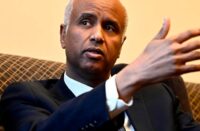Ontario’s Premier, Doug Ford, recently expressed his stance on the upcoming North American free trade negotiations. He believes that if Mexico does not align with Canada and the U.S. in imposing tariffs on Chinese imports, they should not be included in the discussions. Instead, Ford advocates for a new bilateral agreement involving only Canada and the U.S.
This viewpoint comes as North America prepares for the return of Donald Trump as U.S. president. A reassessment of the Canada-United States-Mexico Agreement (CUSMA), which superseded NAFTA during Trump’s initial term, is due in 2026. Both Trump and Ford have criticized Mexico for enabling Chinese firms to circumvent CUSMA regulations and export cars and components into the U.S. and Canada via Mexican factories.
In Ford’s words, if Mexico does not tackle transshipment by, at the very least, aligning with Canadian and American tariffs on Chinese imports, they should not have a say in the discussions or have the privilege of accessing the world’s largest economy. He urges prioritizing the most intimate economic relationship on the globe by directly negotiating a bilateral U.S.-Canada free trade agreement that benefits U.S. and Canadian workers.
Canada has already joined the U.S. in imposing 100% tariffs on Chinese imported electric vehicles and 25% levies on Chinese steel and aluminum. However, Mexico has not followed suit. This has raised concerns about Chinese automakers, such as BYD, establishing manufacturing plants in Mexico and exploiting CUSMA’s duty-free import rules to infiltrate the North American market with Chinese automobiles while avoiding U.S. and Canadian tariffs.
Ford emphasized the trade imbalance between Ontario and Mexico, claiming that Mexico exports the majority of the $40 billion in annual two-way trade with his province. He insists on protecting the jobs of hard-working Ontarians from inexpensive imports.
Canada’s Prime Minister, Justin Trudeau, acknowledges concerns about Chinese overcapacity and unfair trade practices. He advocates for continued cooperation as the best way to address these issues. He also expressed Canada’s intention to follow the U.S. lead on trade issues related to China, particularly those concerning Chinese electric vehicles.
These trade negotiations hold significant implications for investors and those interested in the global economy. The outcomes will undoubtedly shape North America’s economic landscape, particularly in relation to its interactions with China.





